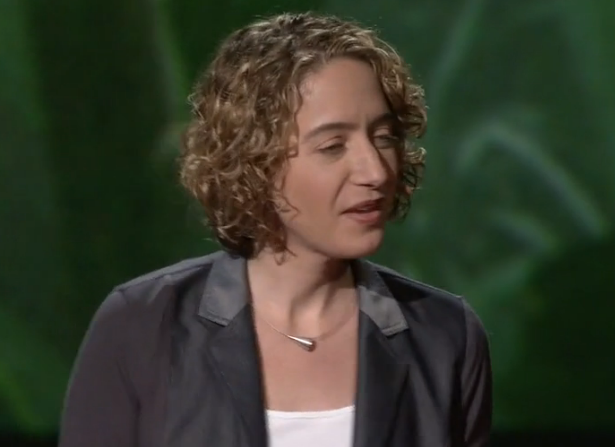I'll give you an analogy.
讓我給你一個(gè)例子。
Do you remember that Loony Tunes cartoon where there's this pathetic coyote who's always chasing and never catching a roadrunner?
你記得卡通里那個(gè)總是在追逐卻從未抓到獵物的土狼嗎?
In pretty much every episode of this cartoon,
幾乎在每一集里,
there's a moment where the coyote is chasing the roadrunner and the roadrunner runs off a cliff, which is fine -- he's a bird, he can fly.
它的獵物--一只走鵑鳥(niǎo)都會(huì)跳下懸崖,反正它是鳥(niǎo),它可以飛。
But the thing is, the coyote runs off the cliff right after him.
但土狼也會(huì)跟著它一起跳崖。
And what's funny -- at least if you're six years old -- is that the coyote's totally fine too.
那很好笑--如果你是個(gè)六歲兒童,土狼也很好。
He just keeps running -- right up until the moment that he looks down and realizes that he's in mid-air. That's when he falls.
它就這么繼續(xù)跑--直到它往下看,發(fā)現(xiàn)自己漫步在空中。這時(shí)候他才會(huì)往下掉。
When we're wrong about something -- not when we realize it, but before that
在我們犯錯(cuò)時(shí),在我們意識(shí)到我們犯錯(cuò)時(shí),
we're like that coyote after he's gone off the cliff and before he looks down.
我們就像那只土狼,還沒(méi)意識(shí)到自己奔出懸崖。
You know, we're already wrong, we're already in trouble, but we feel like we're on solid ground.
我們已經(jīng)錯(cuò)了,已經(jīng)惹上麻煩了,但仍然感覺(jué)像走在地上。
So I should actually correct something I said a moment ago.
我應(yīng)該改變我之前的說(shuō)法。

It does feel like something to be wrong; it feels like being right.
犯錯(cuò)的感覺(jué)就和正確的感覺(jué)一樣。
So this is one reason, a structural reason, why we get stuck inside this feeling of rightness.
事實(shí)上,我們這種自以為對(duì)的感受是有構(gòu)造性的原因的。
I call this error blindness. Most of the time,
我稱(chēng)之為錯(cuò)誤盲點(diǎn)。大部分的時(shí)間里,
we don't have any kind of internal cue to let us know that we're wrong about something, until it's too late.
我們身體里沒(méi)有任何機(jī)制提醒我們錯(cuò)了,直到木已成舟。
But there's a second reason that we get stuck inside this feeling as well -- and this one is cultural.
但還有第二個(gè)理由,文化性的理由。
Think back for a moment to elementary school.
回想小學(xué)時(shí)代。
You're sitting there in class, and your teacher is handing back quiz papers, and one of them looks like this.
你坐在課堂里。你的老師發(fā)回小考考卷,像這樣的小考考卷。
This is not mine, by the way.
雖然這張不是我的。
So there you are in grade school, and you know exactly what to think about the kid who got this paper.
你從小學(xué)時(shí)代就知道該對(duì)拿這張考卷的同學(xué)下什么評(píng)語(yǔ)。
It's the dumb kid, the troublemaker, the one who never does his homework.
笨蛋,搗蛋鬼,從不做功課的壞學(xué)生。你
So by the time you are nine years old, you've already learned,
不過(guò)才九歲,你已經(jīng)懂得,
first of all, that people who get stuff wrong are lazy, irresponsible dimwits
首先,那些犯錯(cuò)的人都是懶惰、不負(fù)責(zé)任的傻瓜,
and second of all, that the way to succeed in life is to never make any mistakes.
第二,想要在人生中成功,就不要犯錯(cuò)。



